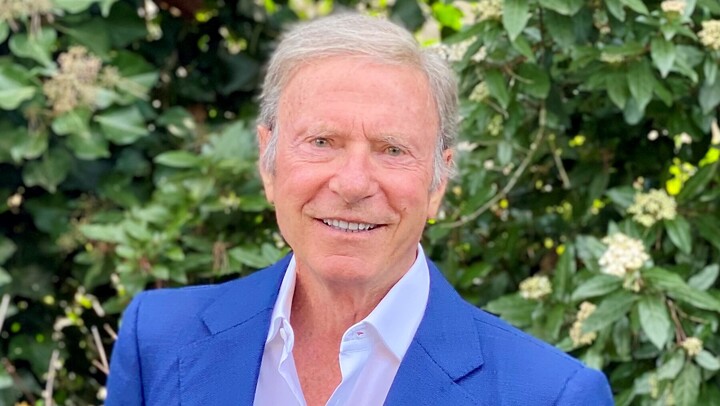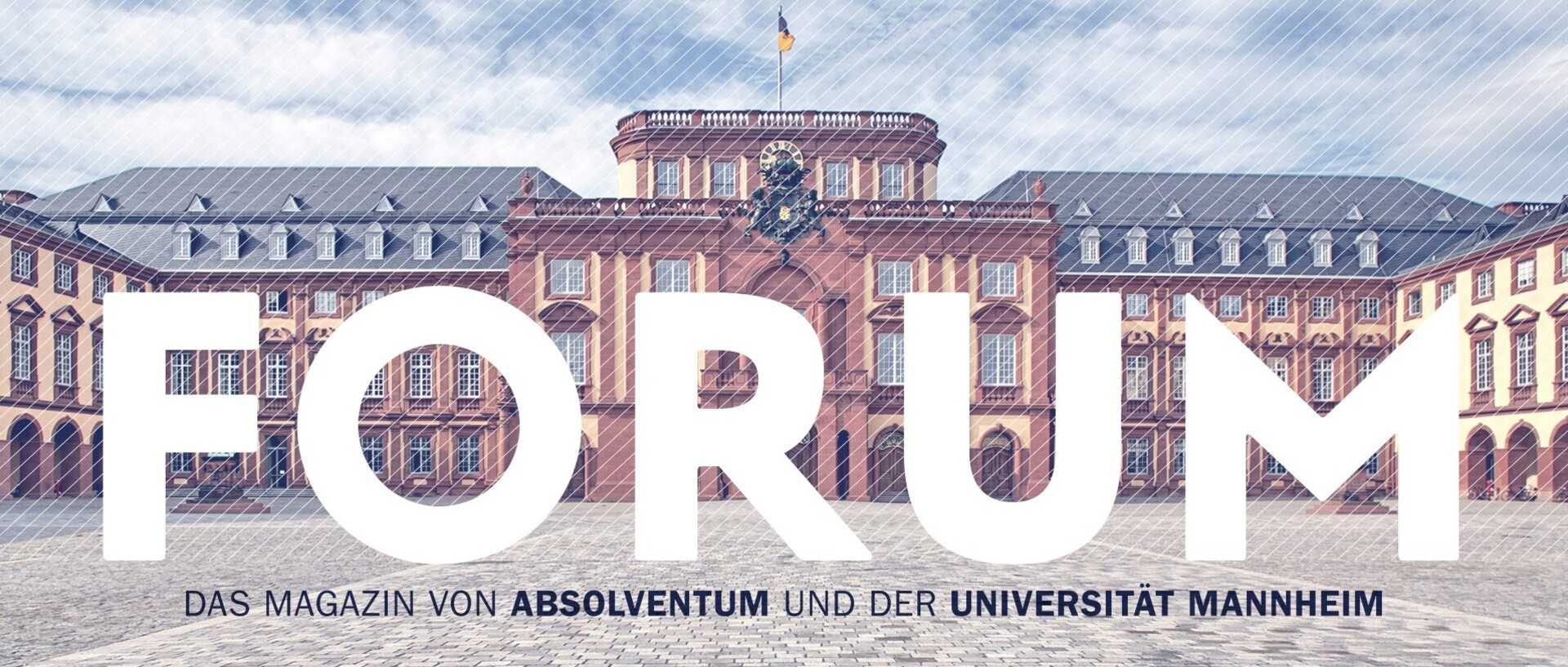Dr. Hans-Peter Wild in Profile
Master of flavors, father of Capri-Sun. Dr. Hans-Peter Wild is world-famous for turning his father’s Eppelheim-based company into a global corporation. But home is home, and so Hans-Peter Wild works tirelessly to give something back to the region where he grew up. He set up the Bright Minds Program (Beste-Köpfe-Programm) to support his alma mater, the University of Mannheim.

It is a summer day out by the pool. A child fiddles around with a plastic wrapper until the thin straw slides out, then pokes with the straw until they pierce the tiny perforated hole. Whoops! The first drop trickles away, wasted. But that just makes the second taste all the sweeter. Capri-Sun. This iconic drink and its ingenious packaging feature in countless nostalgic childhood memories. And Hans-Peter Wild has heard many of them down the years. Like a proud father, he smiles at the stories. Although he is well aware that Capri-Sun is now a global brand thanks to his efforts, with over 5.5 billion juice pouches drunk around the world each year, he is still amazed at what he hears, for in none of his business plans did he ever dream a drink could touch people’s hearts like this. The 81-year-old himself had a Capri-Sunless childhood, though he was born into a world that revolved around drinks and flavors. In 1931, ten years before Hans-Peter Wild’s birth, his parents Rudolf and Leonie Wild founded the company Zick-Zack-Werk Rudolf Wild. The entrepreneurial couple wanted to produce all-natural ingredients for nonalcoholic drinks. Today, over 90 years later, it can confidently be said that the idea was a success. The one-time family company is now a global player which supplies the big names of the food industry – from Nestlé to Unilever, Dr. Oetker to Haribo – with the perfect flavors. Hans-Peter Wild also built up Capri-Sun’s sister company Wild Flavors, which manufactures flavors, extracts, and juice concentrates at 16 plants around the globe. In 2014, Hans-Peter Wild sold Wild Flavors to the American corporation ADM.
He has lived in Switzerland for decades, his private jet has long doubled as his office – but his home is Eppelheim near Heidelberg. That was where it all began. His family home was right next to the factory, and the world was still a different place. “When I was born in June 1941, everyday life was dominated by the war. Although I had a mostly peaceful childhood in Eppelheim, I learned very early on what war means. But my mom managed to keep our factory going until my dad returned from the war in 1945. After that, the two of them were an unbeatable team, who kept on building and expanding the company,” recalls Wild. Inspired by his parents’ energy and dynamism, Hans-Peter Wild knew from an early age that he too wanted to go into the family business. “Since we lived right next to the factory, the company was always part of my life. We knew the people there, and the procedures and operations were pretty much part of our daily routine. When we were kids, we played on the factory grounds, and my parents would often discuss business matters in the family home. I found those discussions far more interesting than my schoolwork,” Wild recounts with a smile. But his mother was determined that he should not go into the family business too early. “She often said that young people needed to learn about the world before they start their career.” Following his mother’s wise advice, after leaving school Hans-Peter Wild studied in Heidelberg, Munich, Mannheim, Paris (at the Sorbonne), and Cambridge. He concluded his first-class education with a doctorate at the University of Mannheim’s Department of Law. His international experience was what gave him the idea of building a global corporation. Wild joined his father’s company in 1974. In 1979, he famously signed world boxing champion Muhammad Ali to advertise Capri-Sun (the most important point for Ali in the negotiations, recalls Wild, was that he wanted to be sent free parcels of Capri-Sun regularly afterwards) and the brand had its international breakthrough.
One of the keys to Capri-Sun’s success was that Hans-Peter Wild realized early on that tastes vary from place to place. The iconic drink is now sold in 110 countries, but it tastes different depending on whether you have it in Nigeria or Japan, the USA or Israel. A businessman through and through, Wild remains active to this day – true to his motto “hard work and fun.” In 2017, he bought the famous Parisian rugby club Stade Français (he inherited his passion for rugby from his father). With his mother, he founded the Leonie Wild Foundation, which supports social projects in the Rhine-Neckar Metropolitan Region. And he recently launched the Bright Minds Program at the University of Mannheim. “Here in Germany, we must put great effort into ensuring our universities keep pace with other prestigious international institutions. In 2007, I launched the Wild Top Brain Program at the University of Mannheim. After the restructuring of the University of Mannheim Foundation, the program was renamed the Bright Minds Program, but the goal remains the same. I very much hope that the university will remain at the forefront of international teaching and research excellence for years to come.”
Hans-Peter Wild is a bundle of energy. He takes telephone calls in flawless English, like the seasoned globetrotter he is. Curiosity and a love of lifelong learning are, he says, his two biggest drives. But if you listen closely, when he switches into German you can still hear a delightful Heidelberg lilt slipping through.
Text: Jule Leger / October 2022
